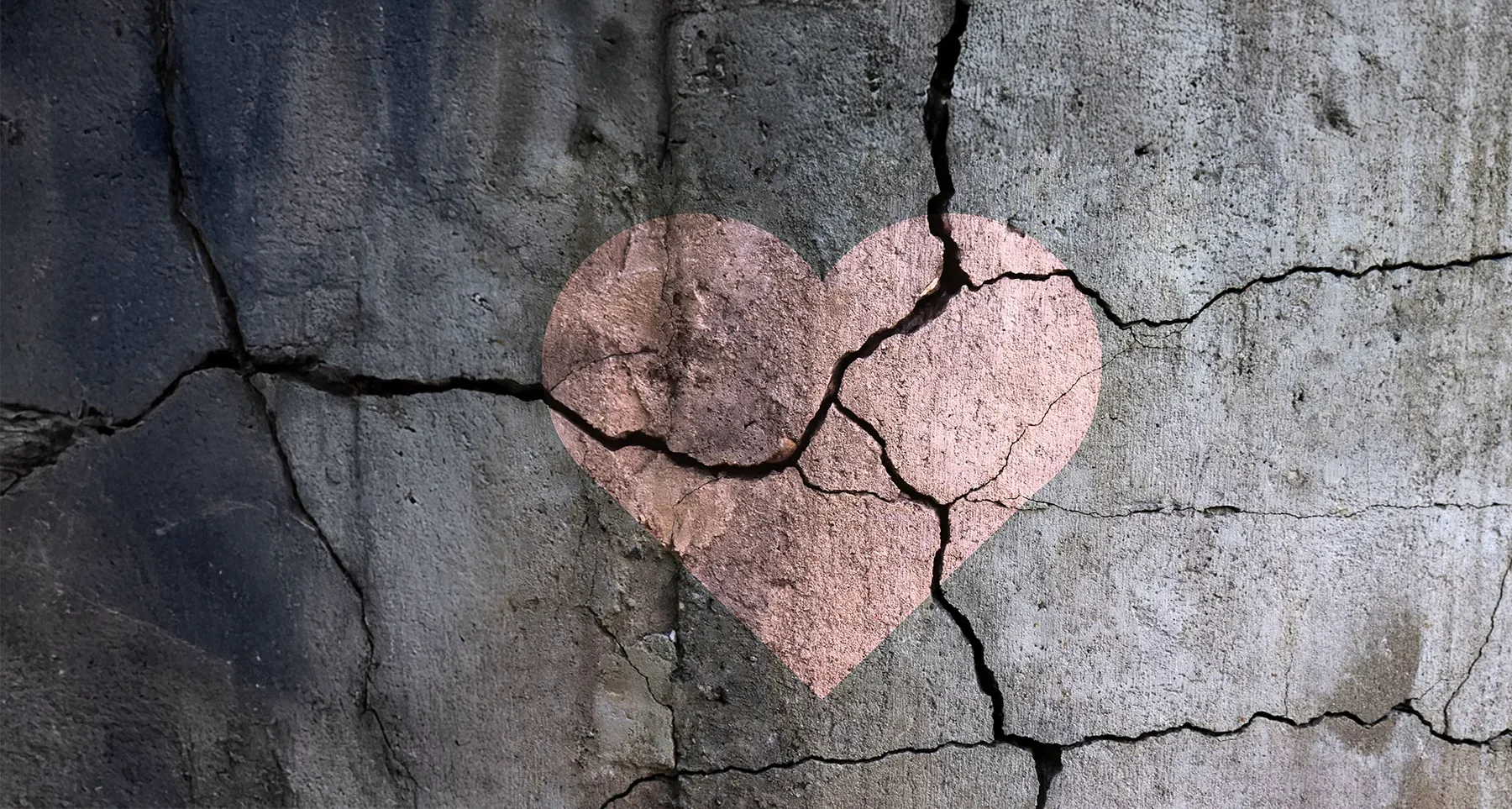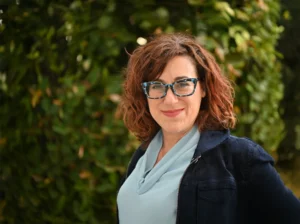Grief and Cancer – Inextricably Bound Together

What I learned about grief while coping with my mom’s death from cancer, followed closely by my own cancer diagnosis.

Cancer and grief. For me, those words are inextricably bound. My mom died from ovarian cancer just weeks before I was diagnosed with early-stage breast cancer. I had been grieving even before my mom died, as I watched her grow weaker and more uncomfortable, knowing she would soon pass. Eventually, my own cancer journey added a new kind of grief — for the loss of my “health innocence,” those days when I felt pretty damn healthy and hoped cancer wouldn’t come any closer than it already had.
What, exactly, is grief?
Grief is the natural response to having lost something, says Wendy G. Lichtenthal, Ph.D., FT, FAPOS, founding director of the Center for the Advancement of Bereavement Care at Sylvester Comprehensive Cancer Center, part of UHealth – University of Miami Health System.
It can include:
shock yearning
anger sadness fear
anxiety numbness worry
guilt existential distress“Grief can be over losses that are happening or have happened, or over losses that we anticipate happening,” says Dr. Lichtenthal, who takes an evidence-based approach to helping Sylvester patients and their families cope with grief.
Many fear asking about grief, talking about it, or facing it too closely. Yet, loss may be the most universal human experience. Nearly everyone who has an attachment will experience loss and grief at some point.
Research shows that processing our grief is an important part of adapting to loss. I’ve taken that to heart, and I’m sharing some of my grief experience here.
Why I grieved my mom even before her death from cancer.
I was fortunate to be able to spend my mom’s last several weeks of life with her — to say important things, to hug her several more times, to see her while she was still smiling.
The first loss I grieved was her ability to have conversations. As her cancer spread, talking became laborious. I had a list of questions I wanted to ask before she died, and even began recording her raspy-voiced answers. But it quickly became clear we’d never get to everything. Soon, she had to reserve her strained voice to answer important medical and care-related questions. Mom was only 76 years old — I had expected so many more years with her, so much more learning about her.
Then, new losses hit: Mom couldn’t stay awake long. A perforation formed in her colon in the middle of the night, necessitating an emergency intervention. Multiple doctors told her to enter hospice care, and she refused for weeks. We moved her to a nursing home and, once she agreed to hospice care, into an assisted living facility. Weight loss was rapid and apparent. She couldn’t get out of bed without a lot of assistance, then not at all.
Each night, in bed in a guest room at my parents’ house, I grieved the parts of my mom that were slipping away, along with the pain, exhaustion and discomfort she must be feeling. I feared for the next middle-of-the-night call. Sometimes I cried or lay awake with my thoughts spinning wildly. Other nights, I just got up and read, or listened to Anderson Cooper’s podcast on grieving, “All There Is.”
And when she died, there was a combination of grief at the finality and relief that she would no longer be suffering or declining. As Dr. Lichtenthal and I discussed, it’s quite normal to experience conflicting feelings at the same time, and part of my journey was simply sitting with those feelings. I still sit with conflicting feelings all at once, and accepting that they’re normal, and I don’t need to do anything about them, has been quite freeing.
Grieving my own cancer diagnosis
Just as I was figuring out how to walk through a world without my mom physically in it, I was diagnosed with breast cancer. After the initial shock, I was slapped with mental exhaustion and the anticipation of the annoying clerical work of getting to surgery. Although I was pretty sure that this cancer would be a relatively easy journey, and that it wouldn’t be fatal, I was still sad, worried, anxious and scared.
To my surprise, the grief related to my own cancer grew as I finished active treatment and began a five-year regimen of tamoxifen. My feelings of grief seemed out of proportion to my actual experience.
I talked with Dr. Lichtenthal, who is also a licensed clinical psychologist and a professor of public health sciences at the Miller School of Medicine, and she assured me such feelings are totally normal. “The shakeup of the cancer experience may lead to different types of grief for the myriad of losses experienced,” she says. “There’s a tendency that many people have to self-assess or compare their situation to others, and then block themselves from feeling grief because they don’t feel entitled to it. If you’re feeling sadness, grief over something that was lost, something that mattered to you, you are entitled to that grief, and it is expected.”
Coping with my grief
As anyone who has experienced grief knows, it doesn’t come in discreet stages. I pass in, out and around various feelings. Random memories assault me and make me either sad or happy, or sometimes both. As Dr. Lichtenthal says, “Grief is nonlinear, it’s chaotic.” It’s also sometimes highly distressing and unbearably painful, which she explained is completely expected.
There are many ways to cope with grief. Personally, I try to take every opportunity to feel whatever I need to feel, and to let it out by crying — our body’s emotional release valve.
In the first year after my mom’s death, I participated several days a week in community prayer. I found an online group of fellow mourners to join with. This gave me a designated time and space to think about my mom and grieve — for her, for myself, for the grandparents I’d lost in the previous two years and the pet dog who’d passed just one week before my mom.
I talked about my mom with anyone who’d listen. I undertook online yoga practices for grieving individuals, participated in sound bath meditations, lit memorial candles, and enjoyed photos and videos of my mom. I cried some more, but I also smiled.
Meaning can help with grief after cancer.
I spoke extensively with Dr. Lichtenthal about meaning-making during the cancer journey. She also shared what her research has shown about the importance of making choices and meaning in any kind of grieving. Specifically, she encouraged anyone who is grieving to:
- Choose helpful ways of thinking.
- Lean on a helpful perspective for a moment, even if you don’t fully believe in it.
- Ask yourself what you’d tell someone you care about.
- Challenge your own hindsight bias.
- Be compassionate about the lens through which you view your world, and toward your thoughts.
- Gently redirect your attention away from thinking about how you “should” feel.
“You always have control over how you respond to the suffering of grief,” Dr. Lichtenthal adds. “This is not about having a positive attitude. It’s about having a stance, whether that’s ‘I’m going to get out of bed’ or ‘I’m going to pull the covers over my head.’”
And if you’re grieving and in pain, but you feel like you must get out of bed and go forward — that’s actually a choice, too, Dr. Lichtenthal said. It’s just so aligned with your values that you don’t recognize you’re choosing.
Let’s talk about grief.
During August, there are two opportunities to hear more about grief from Dr. Lichtenthal.
On August 21, 2025, at 6:00 p.m., Dr. Lichtenthal will share more about her work researching grief and cultivating grief-literate, compassionate health care systems in a talk titled “Care Doesn’t End: Hospice and Bereavement Support for Patients and Families.”
On August 29, 2025, at 12 p.m., Dr. Lichtenthal will host a webinar with Q&A for grievers, called “Building Support: How to Help Others Understand Your Grief.”
National Grief Awareness Day is August 30.
If you’re looking for more grief support, Sylvester’s Center for the Advancement of Bereavement Care offers patients and those grieving for or with them individual and group counseling, education, and other resources. It also offers grief literacy training to medical professionals.
Written by Rochelle Broder-Singer, a journalist with over two decades of experience in journalism and communications, for Sylvester Comprehensive Cancer Center.
Tags: Bereavement support, Cancer journey, Coping with loss, Navigating cancer diagnosis, Sylvester Comprehensive Cancer Center, Wendy Lichtenthal
